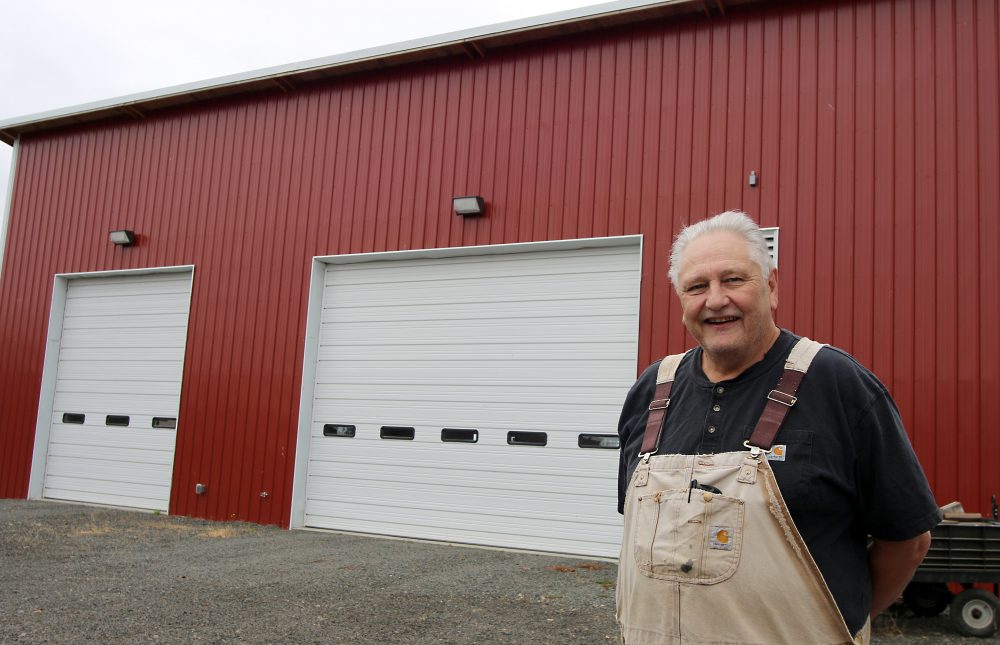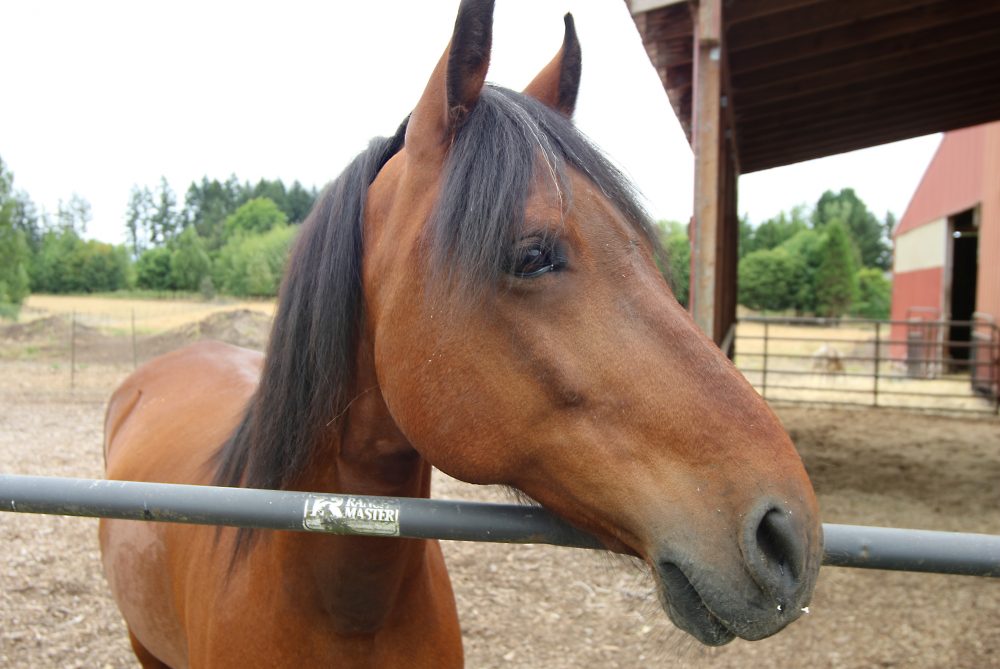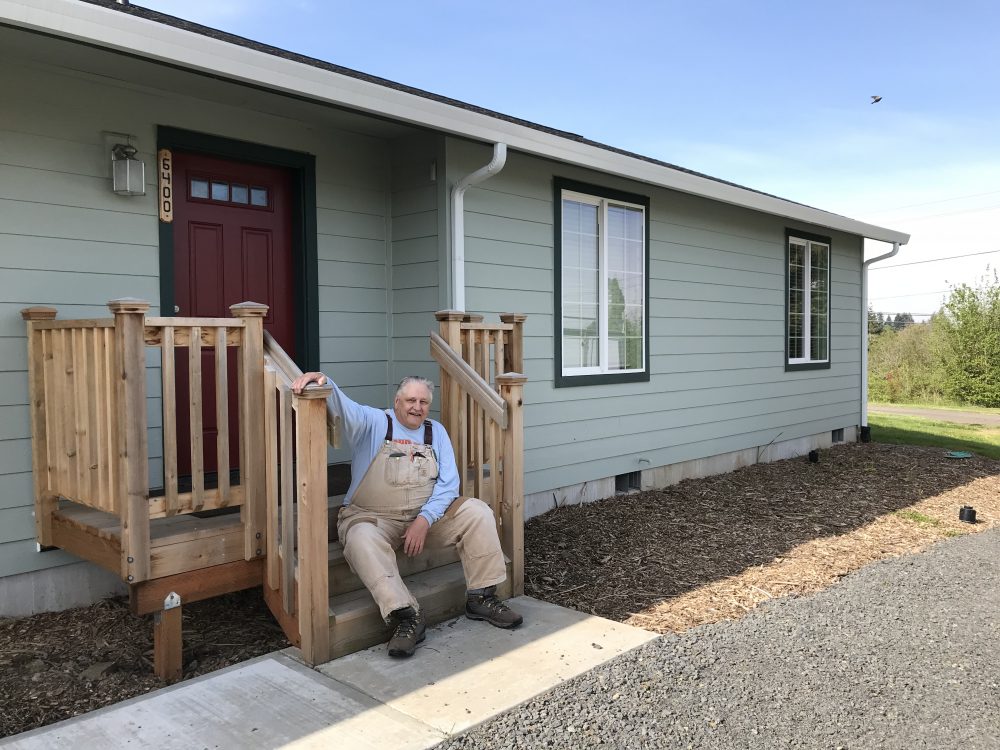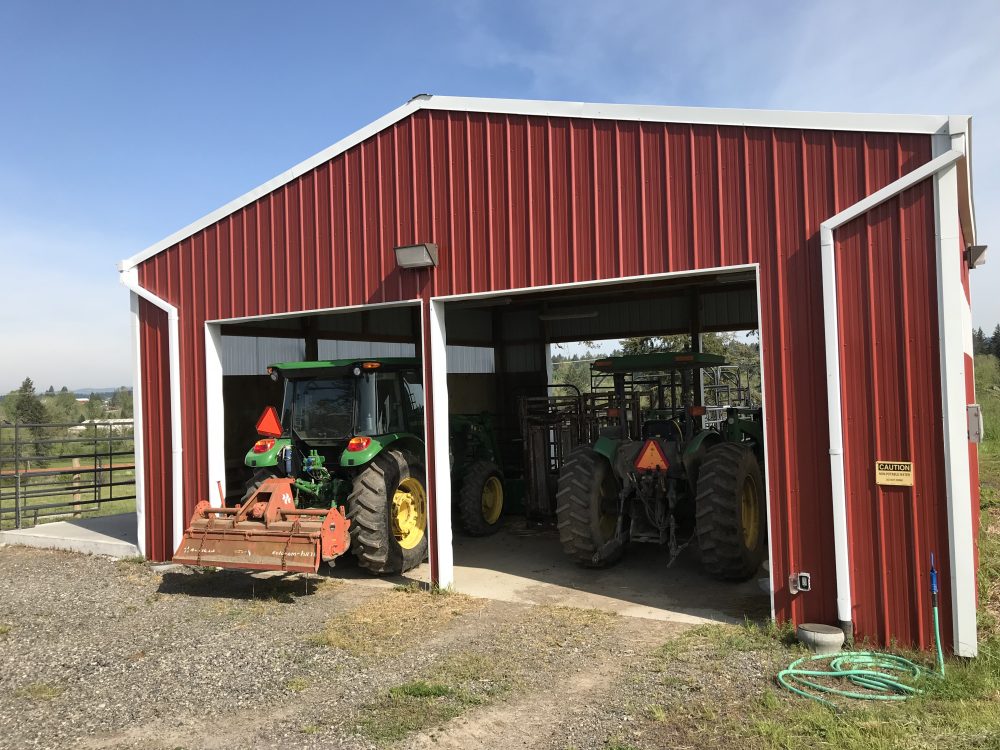This content was published: July 30, 2018. Phone numbers, email addresses, and other information may have changed.
PCC’s farm coordinator Terry Lookabill loves bond updates made to career tech facility
Photos and Story by Katherine Miller

Lookabill stands in front of a new service shop that helps him and his staff work on vehicles and machinery.
Portland Community College’s Veterinary Technology Program may not be the college’s biggest career tech program, but no one can dispute its success: When averaged over the past three years, 97 percent of graduates pass the technicians’ national exam, and afterward there are generally three to four jobs available for each.
Now, because of the bond improvements approved by voters in 2008, the farm located at the Rock Creek Campus can provide much better hands-on training for these students to support their training. The farm improvements include the construction of a new shop, a cattle-handing barn, and a house for the farm supervisor.
According to Veterinary Technology Program’s Chair Ragan Borzcik the old facilities couldn’t adequately serve the students and curriculum.
“Our old barn was dark, falling down, and not built for the purposes for which we needed to utilize it,” he said. “The new cattle lab barn was designed with some of the latest understanding of cattle movement and behavior. The end result decreases the stress the animals may feel as we work with them, keeps our students safer, and takes less time overall.”
Active Farm Means Active Animals
Along with 15 adult cows, PCC’s farm includes 20 sheep, one horse (with plans for a second), five alpacas, one llama, three goats, and eight chickens. Their care falls to Farm Supervisor Terry Lookabill, who has lived and worked on the farm for more than 24 years and is on call 24/7, whether it’s to oversee the birthing of lambs at 2 a.m., changing the oil on a tractor, or repairing a pasture fence.
In addition to the purpose-built cattle lab barn, Lookabill is grateful for the spacious new shop, which features a welding bay for repairing equipment, and another bay with a vehicle hoist, which permits access from below for repairs and maintenance.
Prior to the construction of the new shop, Lookabill had only 24-foot-square space inside the main barn, which meant he had to park vehicles outside on the gravel — in rain or shine — and crawl under them on the ground to service them.
“This hoist has been a lifesaver,” said Lookabill. “When it’s nice out I can be in the field doing work, and when it’s raining I can be in here doing work. You get a lot more done that way.”
Feels Like Home
Lookabill is also enjoying the new caretaker home, a three-bedroom, 1,600-square-foot house built late last year by HiLine Homes, a family-owned Pacific Northwest builder. Lookabill said the old caretaker home was built in the 1930s and suffered from several problems, including a lack of insulation and wiring that “was a nightmare.”
In addition to an open floor plan, the new house is all-electric and much more energy-efficient than the old, smaller home, which required costly oil heating in the winter.Lookabill said “there’s nothing fancy” about his new house.
“This is about a simple a house as you can build,” he said. “It’s just rectangular. But it’s a comfortable house and it’s bigger than I need. I’m going to retire in another year and a half and so it was a good plan on the college’s part because more than likely the next person they bring in here is going to have a family.”
As Lookabill winds down his long career, Rock Creek’s 32 vet tech students can look forward to a promising future. Employment of veterinary technologists and technicians is projected to grow 19 percent from 2014 to 2024, much faster than the average for all occupations. Some students elect to transfer to a four-year university to pursue a degree to become a veterinarian.
The success of PCC’s vet tech graduates can be attributed in part to how well-prepared they are, said program chair Borzcik.
“Alongside the technical training, our program also strives to teach our students the soft skills of work and life. This includes interpersonal skills as well as professionalism, lifelong learning, and giving back to your career and your community.”



